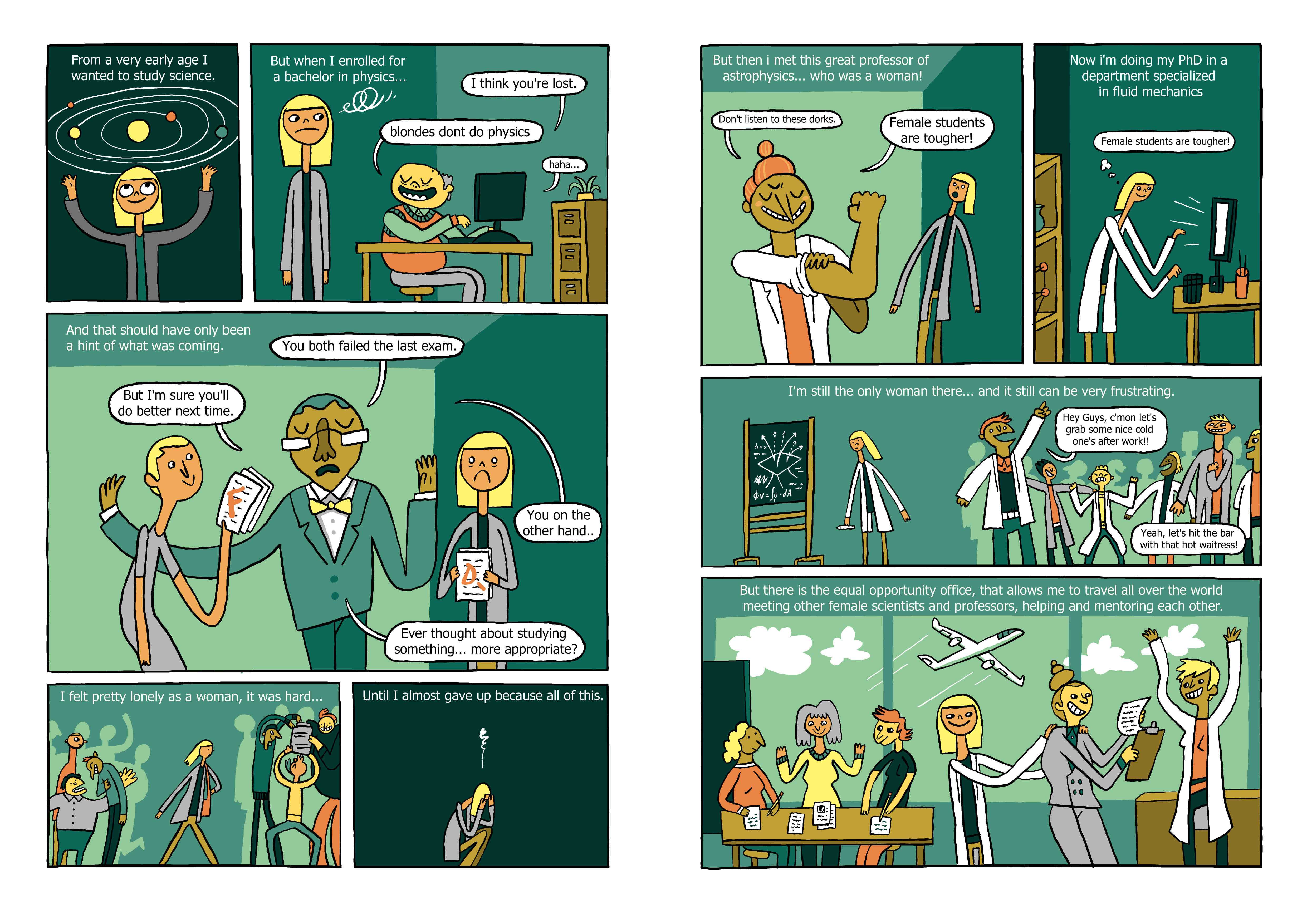According to UNESCO science report, today only 29% of researchers are women and only 3% of Scientific Nobel Prizes have been awarded to women. While men and women are equally represented in the undergraduate courses in science, technology, engineering and mathematics (STEM fields), the number of women in science and academia drops with each increasing level of qualification. Diverse workplaces have been shown to be more productive, more innovative and more creative because people with different background address problems in different ways, ask different questions, and come up with different hypotheses and strategies to solve problems. This is one of the reason why the scarce representation of women in academia has serious consequences on the research system.
Of Course!
One way to address this systematic under-representation of women towards the top of the academic career path (“leaky pipeline”) is to provide role models, women and men, to the students and scientific community. A beautiful initiative in this area is a comic book called “Of course!” has been designed, produced, printed and distributed in November 2020 by LMU Munich. My story is featured among other eight illustrated interviews of researchers who experienced gender biases and imbalance at home, during their education, and at their work place. The aim is to inspire and encourage young women by showing examples of how by making positive changes can lead to a happy and fulfilled life as a scientist. Here is my story illustrated by the graphic designer and cartoonist Dominik Wendland.
Italian projects for female students in STEM
I have been interviewed by the journalist Benedetta Moro for a paper in the Italian newspaper “Il Piccolo” on 26 January 2021. The article talks about my involvement in the project “Of course!” as an inspiring female role model. The challenges I faced, Benedetta wrote, are widespread among women in the academic world and although the path is sometimes very hard, having the encouragement to other women (but men too) can be fundamental. The article goes on saying that in Germany, equal opportunities are taken very seriously with the hope to increase the number of women in leading positions in academia, and there are several projects and funds dedicated to this. In particular, the comic book project aims to encourage young female students that would like to start a career in science. Although choosing this career can be tough, and there are obstacles to overcome, it is a gratifying job. It is also mentioned that I won the Max-Grunebaum prize for the best doctoral thesis at the BTU Cottbus-Senftenberg university and that I was shortlisted for the Bertha Benz prize.


